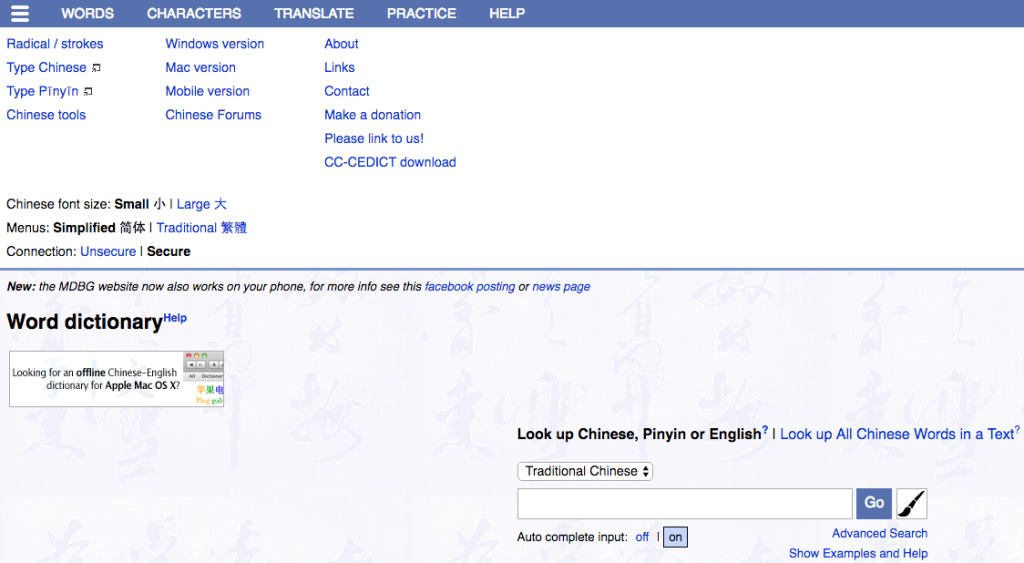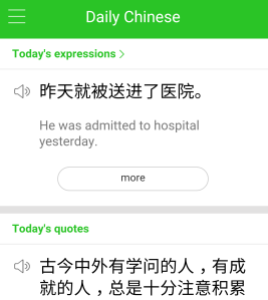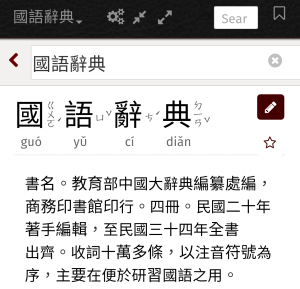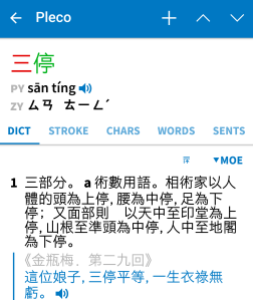It was quite a while ago now I ran a little poll asking if people preferred using Paper Dictionaries, Electronic Dictionaries, or both. Well, turns out the results were pretty much unanimously in favor of Electronic Dictionaries!
With their convenience, portability, and instantly accessible information, electronic dictionaries are probably the best option for language learners these days.
So, here’s my Top 5 Electronic Chinese Dictionaries:
#5: MDBG

Why it’s a great choice:
MDBG has been around for a while, it is almost the staple online dictionary for Chinese language students. Quick, easy, and with plenty of display options for search results, it’s no wonder that it’s been around for a long time.
Easily accessible online through any browser, MDBG is a quick and easy reference that I turn to when I’m translating documents. Since I am usually at my computer when I’m translating documents, it’s much easier to pop open MDBG in another tab and reference to it when I need to. In addition, it has these other great features:
- handwriting recognition for writing characters if you don’t know the Pinyin to type it in;
- looking up by radicals;
- Chinese and Pinyin typing interfaces
Check it out here.
#4: LINE dict

Why it’s a great choice:
LINE is pretty much everywhere these days, perhaps only second to WeChat, and it goes without much surprise they would also put out their own dictionary apps. LINE dict is available online, as well as for both iOS and Android. The online version seemed to me a bit slow and it had issues loading a few pages, so I would overall recommend the apps themselves.
The dictionary is fairly expansive, and it includes some nice features like a sentence analyzer, handwriting support, and stroke order animations. It also has audio throughout the dictionary. Having mobile apps put this one step above MDBG, but if you’re looking on your computer at home, stick with MDBG.
iOS version here.
Android version here.
Online here.
#3: Mengdian (萌典)

Why it’s a great choice:
As far as pure Chinese language dictionaries go, this is one of the best ones out there. It has a smart new interface and pulls from a larger variety of sources. It’s a good resource to have when you come across any ambiguities in the English definitions for Chinese characters or phrases. I often like to pop into this dictionary to verify that I understand the meaning of the characters that I’m using. They source this dictionary directly from Taiwan’s Ministry of Education.
Included in the app are also dictionaries for Taiwanese and Hakka, which are fun to reference if you happen to encounter those languages quite often (as happens in Taiwan).
Another really great thing about this dictionary is that you can get it for Android, iOS, as well as download it on Windows, OSX and even Linux.
Check out the online version here: https://www.moedict.tw/ There are links to the mobile apps at the top right of the page.
And my number one electronic dictionary is….. actually a tie!
#1: Hanping Chinese Dictionary

Why it’s a great choice:
I’ve already gone over this dictionary a bit in my Chinese Learning Apps for Android post, which you can take a look at here as well as in the recent tone colors post. The developer keeps the app updated regularly, and there is a whole series of related apps, including a soundboard and a Character popup reference tool (I’ll be covering these in another post).
Hanping is an Android exclusive app, but there’s a free version and a pro version available. The Pro version is totally worth the small investment, and opens up a bunch of great features, including AnkiDroid Flashcards and multi-dictionary support.
The free version is no slouch either, and includes handwriting recognition and audio pronunciation. So if you were on a tight budget, Hangping’s free version is a great option to start with (plus, no ads!).
Check it out on Google Play here.
#1: Pleco:

Why it’s a great choice:
It’s really hard to beat Pleco in terms of overall functionality, accessibility (both on iOS and Android), and the sheer number of add-ons that you can get. The variety of dictionaries available for purchase is also a huge asset that makes Pleco invaluable to any Chinese student. However, it is a significant investment to get in all of the features you might want to use (aside from a few dictionary options, pretty much all of the other add-ons cost money. For example, the app has a handwriting recognizing but costs $10 for the enhanced version).
Find out more about Pleco here.
Either way, both of the #1 dictionaries are the best you can get for mobile devices, and I highly recommend giving them a try. Both are free to try, with add ons you can purchase later (such as more dictionaries in Pleco’s case).
What do you think? Were there any that I missed? Let me know in the comments below!

Pingback: Hanping: A Comprehensive Chinese Dictionary App Suite for Android – En Route to Fluency